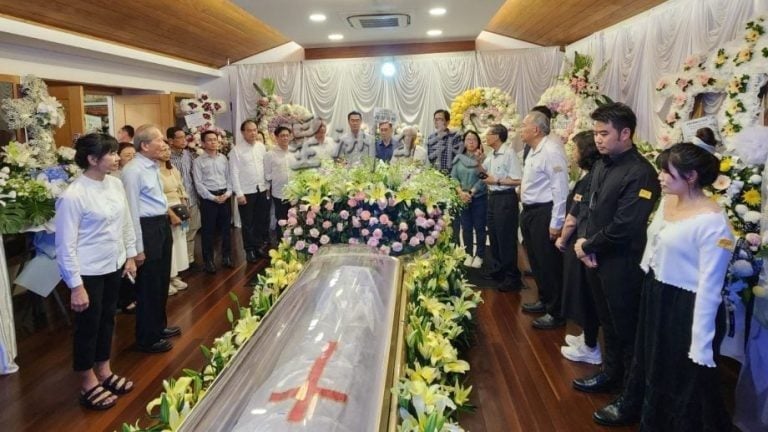News

People from all walks of life—locals, politicians, business associates, Chinese community leaders, journalists and friends travelled by air and land to Sibu to bid farewell to Tan Sri Tiong Hiew King, who returned to be with the Lord at 11 a.m. on November 11. Khoo Kar Khoon, executive director of MCIL and chief executive officer of MCIL, Malaysia, extended deepest condolences to Tiong’s family on behalf of board of directors, management and staff from Sin Chew Daily, China Press, Nanyang Siang Pau, Guang Ming Daily and Life magazine. “His dedication, exceptional leadership, and vision have inspired many colleagues in the company. He will continue to serve as a model for generations to come. “Tiong’s impact and accomplishments have transcended Malaysia’s borders,” Khoo said. The chief executive officers and editors-in-chief of Sin Chew Daily, Nanyang Siang Pau, Guang Ming Daily, China Press and top management of Media Chinese International Limited joined Khoo to bid farewell to Tiong on Friday afternoon. “Sarawak has lost a great son,” said Datuk Sebastian Ting Chiew Yew, Deputy Minister for Tourism, Creative Industry and Performing Arts I, who is also the secretary-general of the Sarawak United People’s Party (SUPP) who paid his respect to Tiong on Friday. Datuk Ding Kuong Hiing, Meradong state assemblyman, led the Bintangor SUPP branch in paying their respects to Tan Sri Tiong Hiew King. He described him : “A legendary figure and a senior whom I deeply respected, as well as a fellow SUPP comrade.” Rev Ting Diu Kiong said Tiong’s life story is a source of inspiration and encouragement for many. He is an extraordinary figure rarely seen in centuries who has united the global community of Chinese. “Chinese throughout the world are united through Chinese media, at the same time, he has also united the Chinese who are Fuzhou in all parts of the world and those whose surname are Tiong, leading everyone to engage in meaningful stuff,’’ he said. “My two elder brothers who have worked in his company said he is a good and caring person,’’ said Ting.
3 d ago